“G’Day, how you going?”
“I’m stuffed”
“Have a beer from the Esky, mate. I’ll throw something on the barbie”
Translated into USA English:
“Hello, how are you doing?”
“I’m tired” or “I’m in trouble”
“Have a beer from the cooler my friend. I’ll throw something on the BBQ”
When you are in trouble in Australia, there seems to always be an Aussie there to help. At least that is my experience from the seven months we have been here. In this land down under the Equator (or is it above -who said North was the top anyway) is a land of extremes. Australia is an island with heat from the equator on one side and winds and currents from Antarctica on the other side. It is a land of extremes, a place where a good morning can turn on a penny when the winds change.
A Land of Extremes
According to the Bureau of Meteorology, a severe drought occurs in Australia every 18 years. The country is also subject to devastating fires that can be made much worse by the dry conditions when the drought has turned everything to kindling. Then to end the fires the rains come and cause flooding.
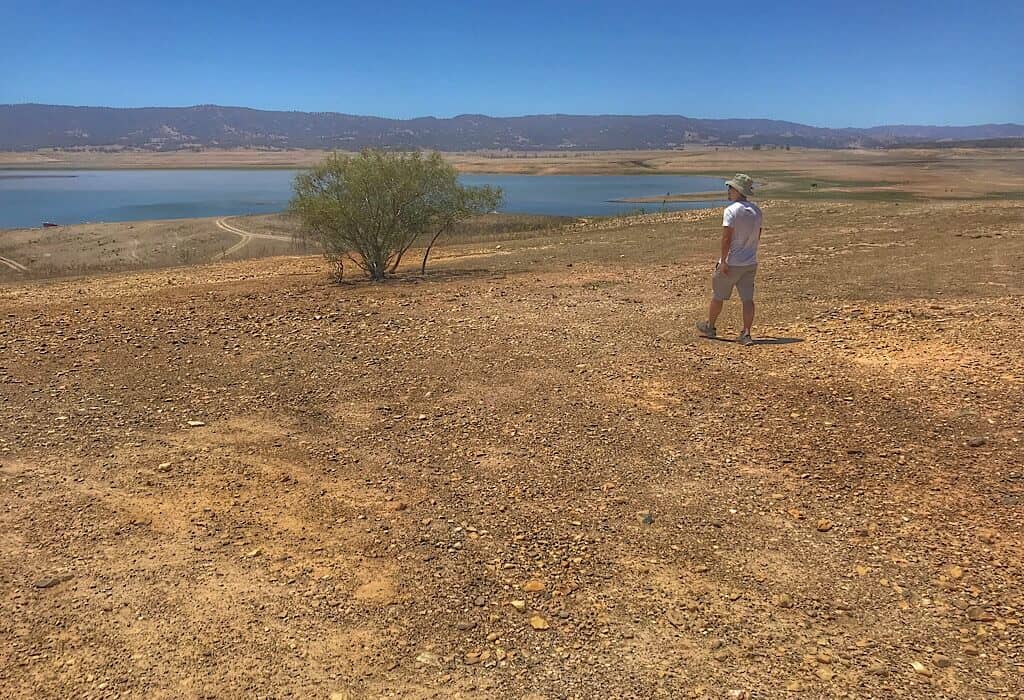
Drought-Day Countdown
Near the end of last year, as we toured some of the areas suffering from drought in New South Wales, we noticed the “day zero” signs that had dates on them. They indicated when the town would be completely out of water if it did not rain. They were in level 5 restrictions that limit how much water each individual is allowed to use.
Some of the rural communities had reached day zero and water was being trucked in.
Note of History: The Federation drought that occurred from 1895 to 1903 impacted most of Australia. The number of sheep was reduced by half (by 50 million), the number of cattle by 40% and the wheat crop that usually produced 8 bushels per acre dropped to 2.4.
As if the drought was not bad enough, then came the fires.
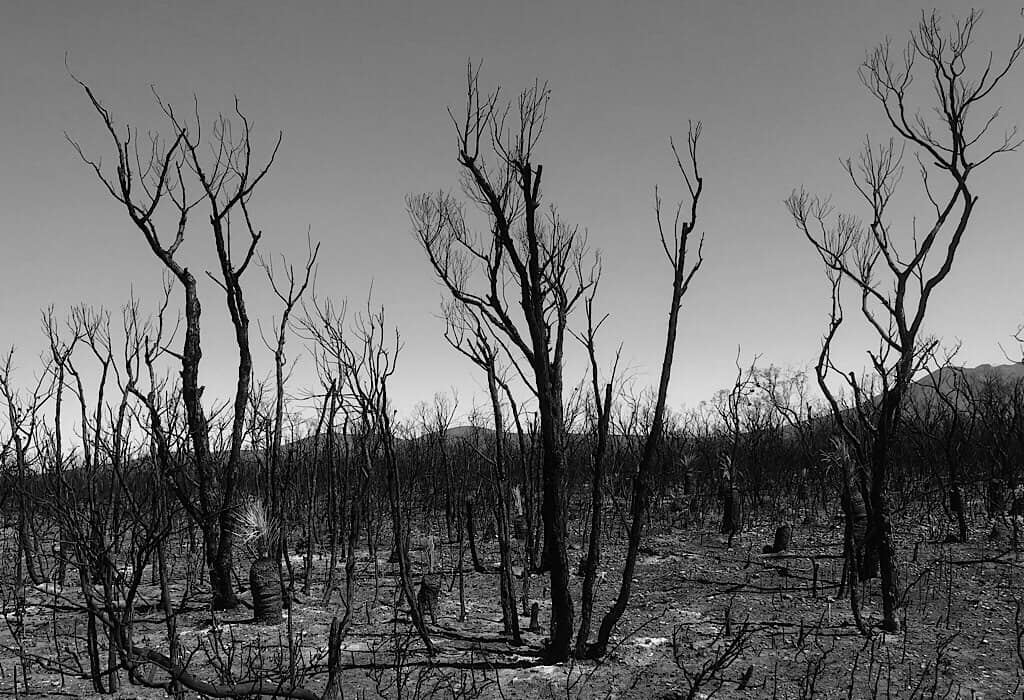
Black Summer
The 2019/2020 fires in Australia became so intense and widespread that news of them even reached the United States. The fires burned over 72,000 square miles, destroyed almost 6,000 buildings and just under 3,000 homes. Thirty-four people lost their lives and over a billion animals are estimated to have perished, some may now be extinct (data from Wikipedia).
The feed for animals growing in the fields, already scarce from drought, light fire and burned. Towns were evacuated and people lost their homes, crops, and livestock.
Smoke from the fires choked the city of Sydney and even traveled to as far as Chile.
There are still a number of fires burning, but they have been reduced by recent rainfall. People are preparing for the flood that often follows the rain.
With all this devastation and hardship one might expect to find a people beat down, paralyzed by fear or given up. That is not what I am seeing.

The Aussie Positive Attitude of Survival
The amazing part to me is the positive attitude of survival. The view of life that takes hardship as it comes and continues on. They deal with it and don’t let it ruin their outlook on life.
Some farmers have had to sell their lots and the firies (Aussie slang for firefighters) are tired and worn out, but the strength of their spirit still shines bright. The loss here is no less than it would be anywhere else, it is huge and it is difficult. The difference is the spirit that keeps trucking on and the outlook on life that remains positive.
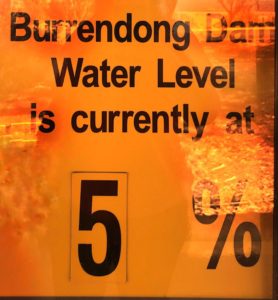
Most people we talked to take this all in stride even as 90 towns considered evacuation due to the water shortages.
Locals in the drought-ridden areas spoke about what they were doing to conserve water as one would speak about any normal task. There was no fear or “woe is me” in their voice or gestures. “I used my shower water to water my flowers this morning” was said like “I got a discount on my favorite yogurt.”
It seemed that the most devastated were those who spoke of their livestock – herds of cattle and flocks of sheep that the farmers and their families before them spent decades building up. They were now struggling to water and feed their animals. Some were forced to sell off part or all of their herds or flocks. I imagine it would be like selling off your children because you wanted them to survive.
For other examples of resilience in harsh environments, see Fog Catchers & Ghost Towns of Chile.
A logical look at reality
I’ve recently started listening to the Macca show. It is a Sunday morning talk show hosted by Ian McNamara that takes calls from Australians all over. Ian was talking to a caller who lost his home in a twister in Queensland on January 20th of this year.
“I looked [outside], the veranda went off the front of the house and then I looked back up in the bathroom and the roof went off and I thought, geez this is gettin a bit serious. I better slip me strides on and get out and have a look at this,” Darren, the caller, in an easy-going manner described the wind and damage followed by the calm as he stood there in the eye of the twister. He lost everything but a shed and the silos.
“Where are you living now?” Ian asked.
“Oh, I’m just in the shed here, mate,” said Darren who went on to describe how amazing the wind was, how far it took iron from the house and wrapped it around poles.
I don’t know if you can glean from the written word the attitude in which they are spoken. Darren was calm with nothing distraught in his tone. “Yeah, we lost our house” was said like “Yeah, the tire went flat” as if it were a normal obstacle that just had to be fixed.
The call above with Darren was scripted from the February 16th episode and is worth a listen: https://www.abc.net.au/radio/programs/australiaallover/australia-all-over-highlights-podcast/11969992
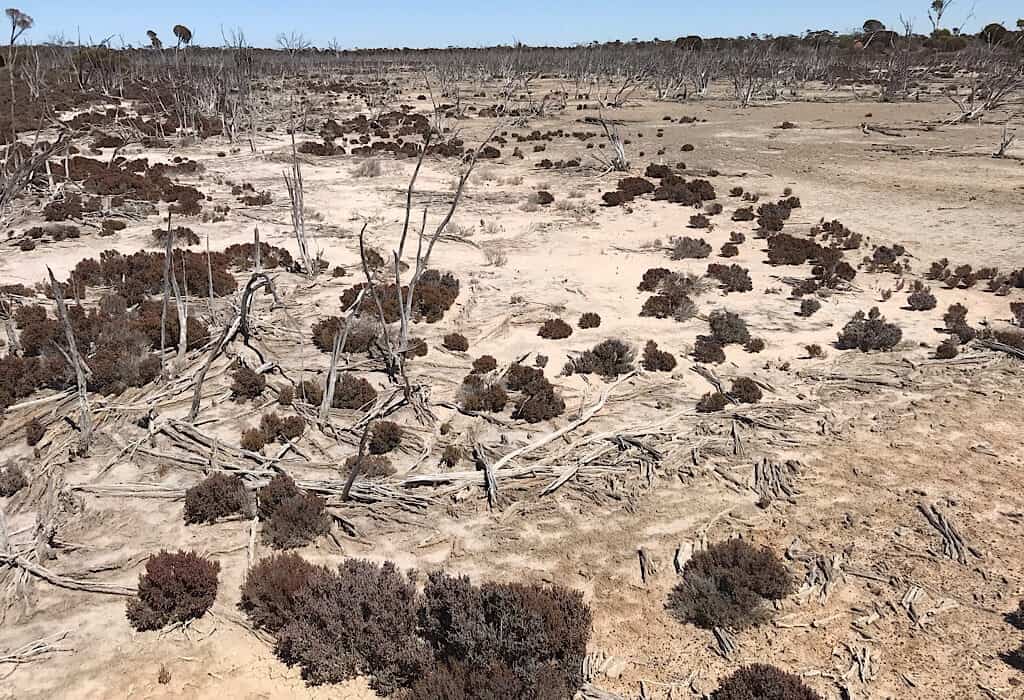
“If we hang in together we will get through it”
Another caller on a different episode said in her response to the drought and fires, “We don’t know how long we can go, but my hubby said if we hang in together we will get through it so that’s what we are trying to do.”
Aussies are survivors. They don’t cry the blues on air. They pick themselves up out of the dust and keep on walking. This theme seems to be common across this continent.
The Aussie Response
Aussies are very generous and they respond quickly to help someone in need. Sometimes not even obvious need. We recently had a stranger walk up to us and start talking to us about our bus, Lil’ Beaut. After learning that we were visiting from another country and traveling he asked if we needed anything. It was a genuine offer.
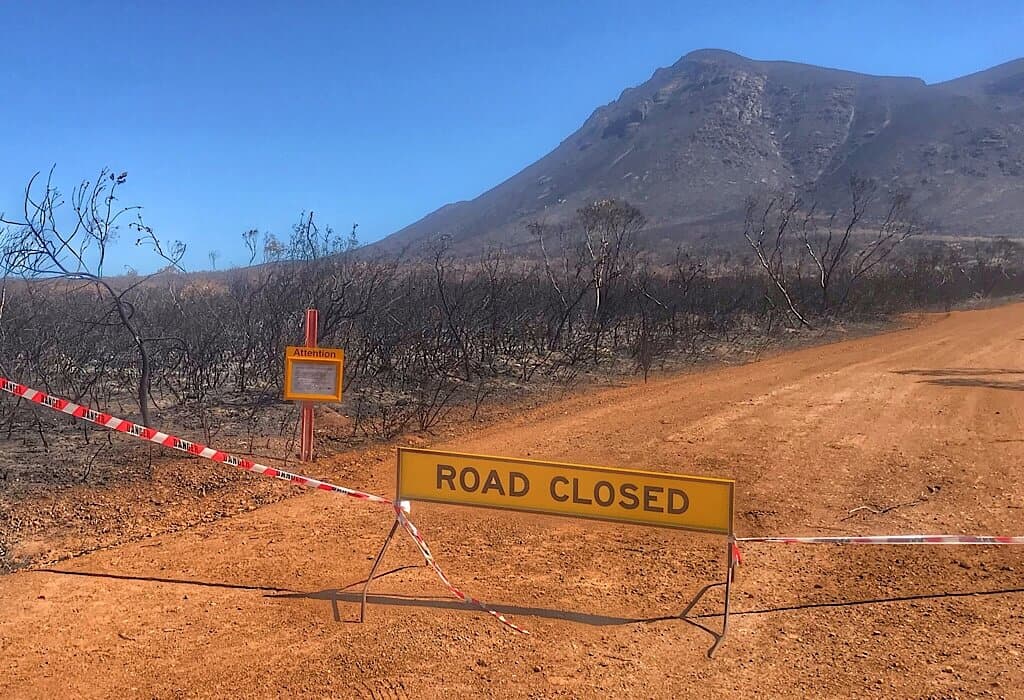
Organized Charity
Blaize Aid has organized volunteer camps to rebuild fences and structures damaged during the fires.
Farmers across the country have donated feed for livestock and truckers are donating their time to transport this feed to the hardest-hit areas.
Small town councils are paying to have water trucked into the rural areas around them.
Drought Angels take in supplies and care packages to farmers in need.
One rural farmer from the Gold Coast called in and talked about how a day in December when Drought Angels changed her Christmas. She got a call from a stranger asking if she was going to be home. This would be alarming under most circumstances, not here. Later in the day, the stranger showed up at the farm with a gift basket.
“It gives you a hope and gratitude that people actually care. Because when you live out here and you are dairying, sometimes you just don’t think people give a damn and this lady did it on her own bat and she made up 10 hampers and gave them to the farmers in this area. We weren’t going to have a Christmas….now I’ve put my Christmas tree up and we are going to have a Christmas thanks to Glenn and Paul,” this said with tears of gratitude in her voice. (from the Dec 15th episode of Australia all over)
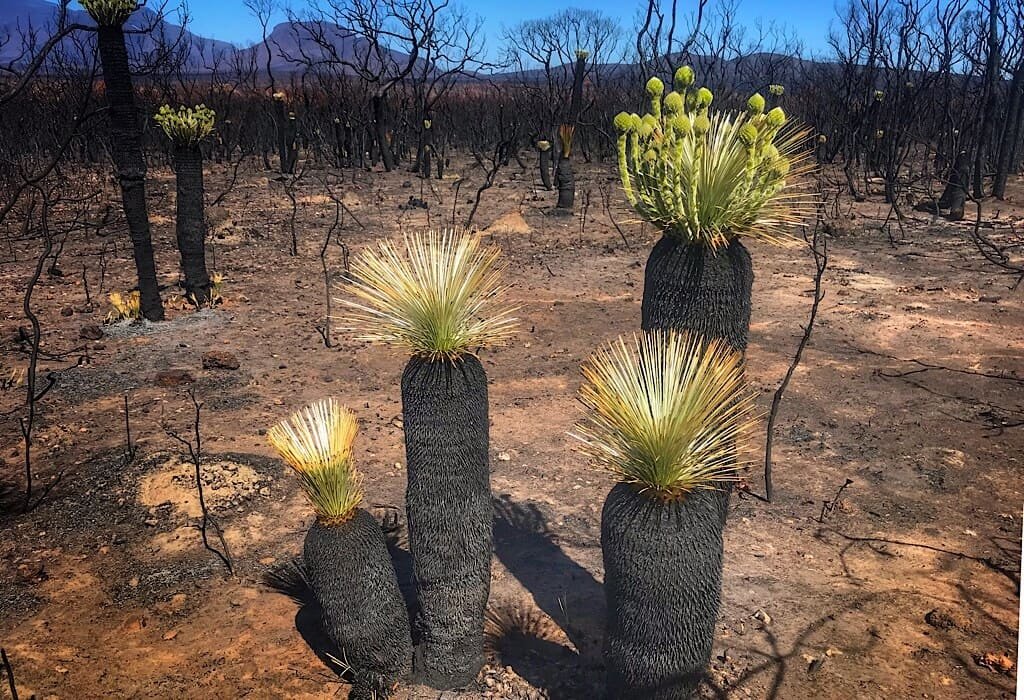
The Spirit of Aussies
People here pulled together in the united front of survival, aid, and encouragement. The beauty of the Aussie spirit, the spirit that is willing to lend a hand for nothing in return shines through.
The Maca show is a Sunday morning Aussie radio program that takes calls from all over Australia to see how people are doing. It highlights the beauty of the Aussie spirit, the calm can-do attitude and the generosity of this country. For a taste of Australian culture, you can download an episode or two of the Australian All Over Podcast to get a few highlights from the show. It’s worth a listen. (I am not an affiliate)
Giving is beautiful and it’s good for the giver’s health too. Maybe your blue door lies behind a giving spirit. Who will you help this week?


What a lovely post. Thank you Bonnie. I think it comes with our heritage, we were always so far away from other countries, we just had to make do, invent and get on with it. Resilience is something we have grown up with. You and Trin are always welcome to come and stay.
The resilience, honesty, and hospitality is all beautiful here. I’d love to stay in Australia. We keep talking about applying for residency but we will decide when we come closer to the end of our visa
Fabulous we would welcome you with open arms.
That is so neat. Just talking to people who have lost a lot or lost all and speak with a calm spirit like that and not sound defeated, this should make us count our blessings each and every day. I truly believe if we look hard enough we can always find something to be thankful for. What a great blog
Thank you Jackie. I love how everyone here helps each other too. It’s so beautiful
Not just for Australia’s sheer beauty, but for the true spirit of our brother’s and sister’s, this is why I’m proud to be an Australian! ❤
❤️❤️ The spirit is beautiful and something to be proud of. ❤️❤️
I am so thankful for a wonderful Australian family who made their way to Iquique and became our dear friends. The spirit you describe I witnessed in them as they weathered a major (8.2) earthquake practically upon arrival and a family member’s life-threatening brain aneurysm which required being flown to the capital city of Santiago for surgery in the midst of so many unknowns. Somehow I feel you must fit right in there, Bonnie! Thank you for sharing your stories.
Wow that’s quite an introduction to Chile for them. I’m glad you had such wonderful people around you for that difficult time.